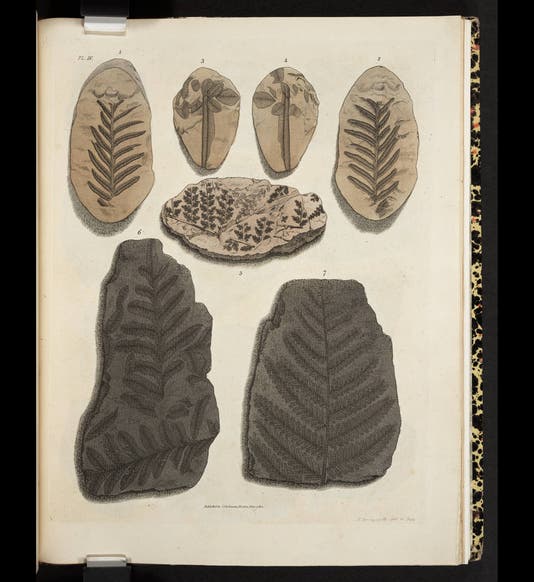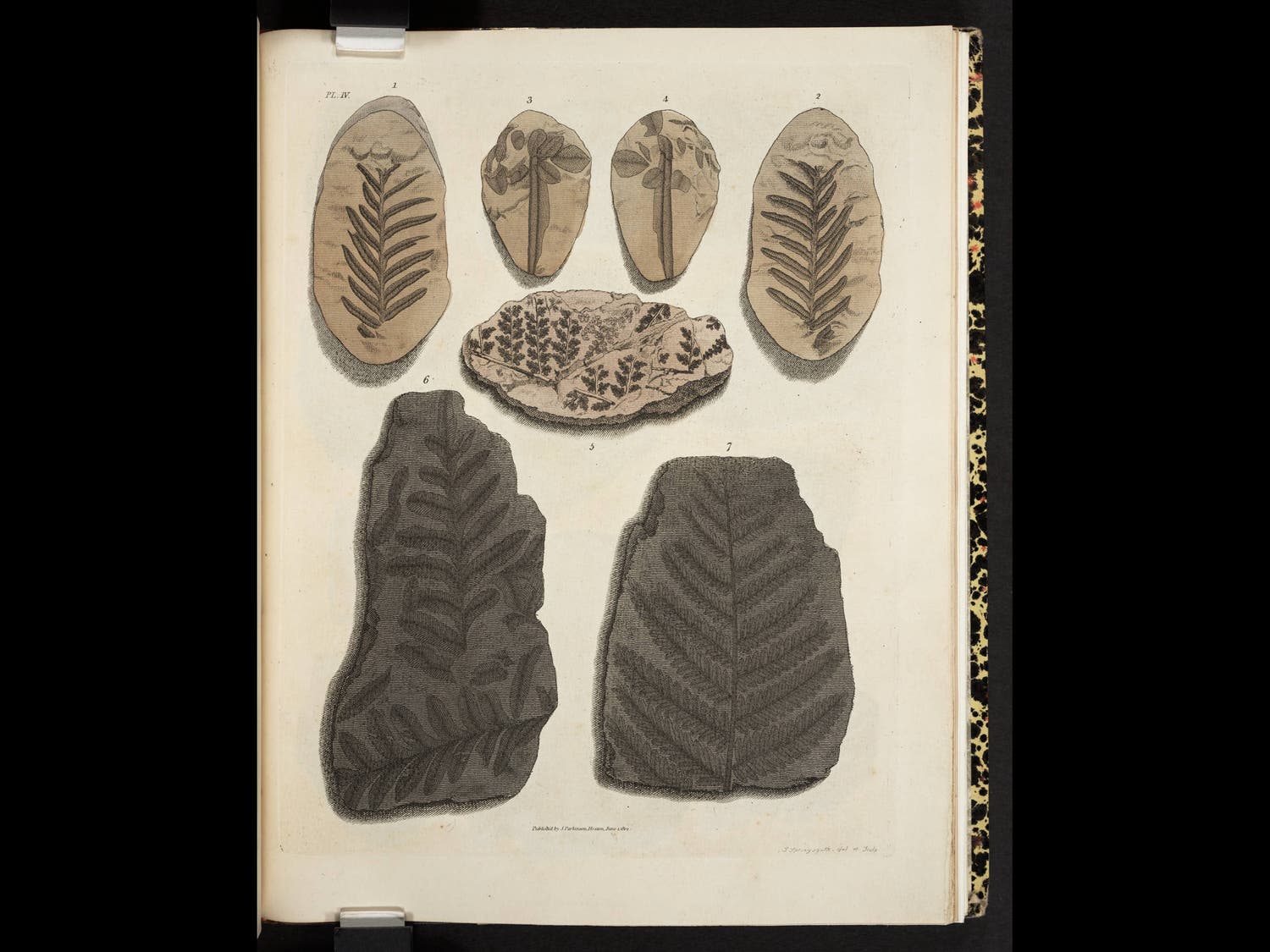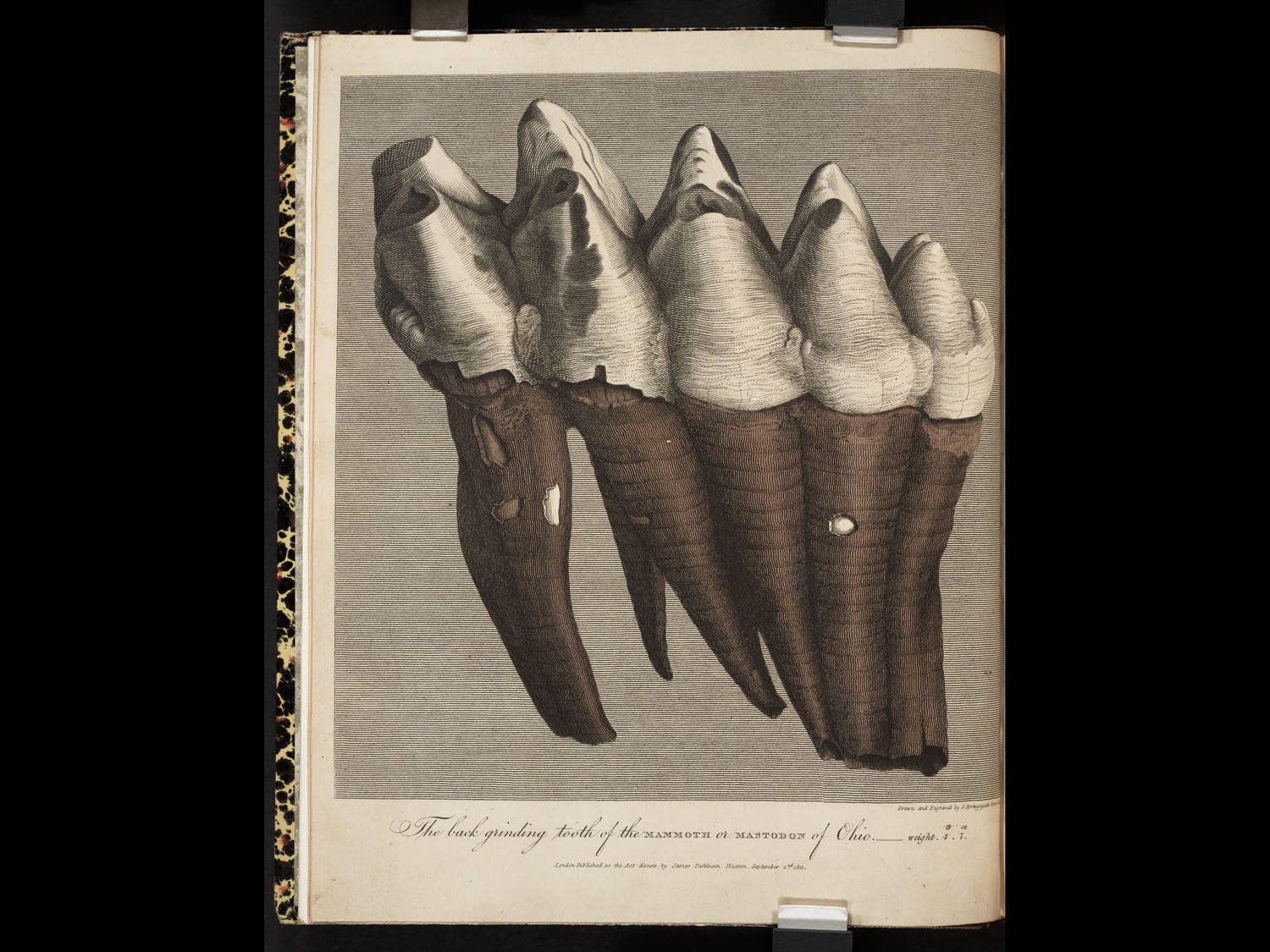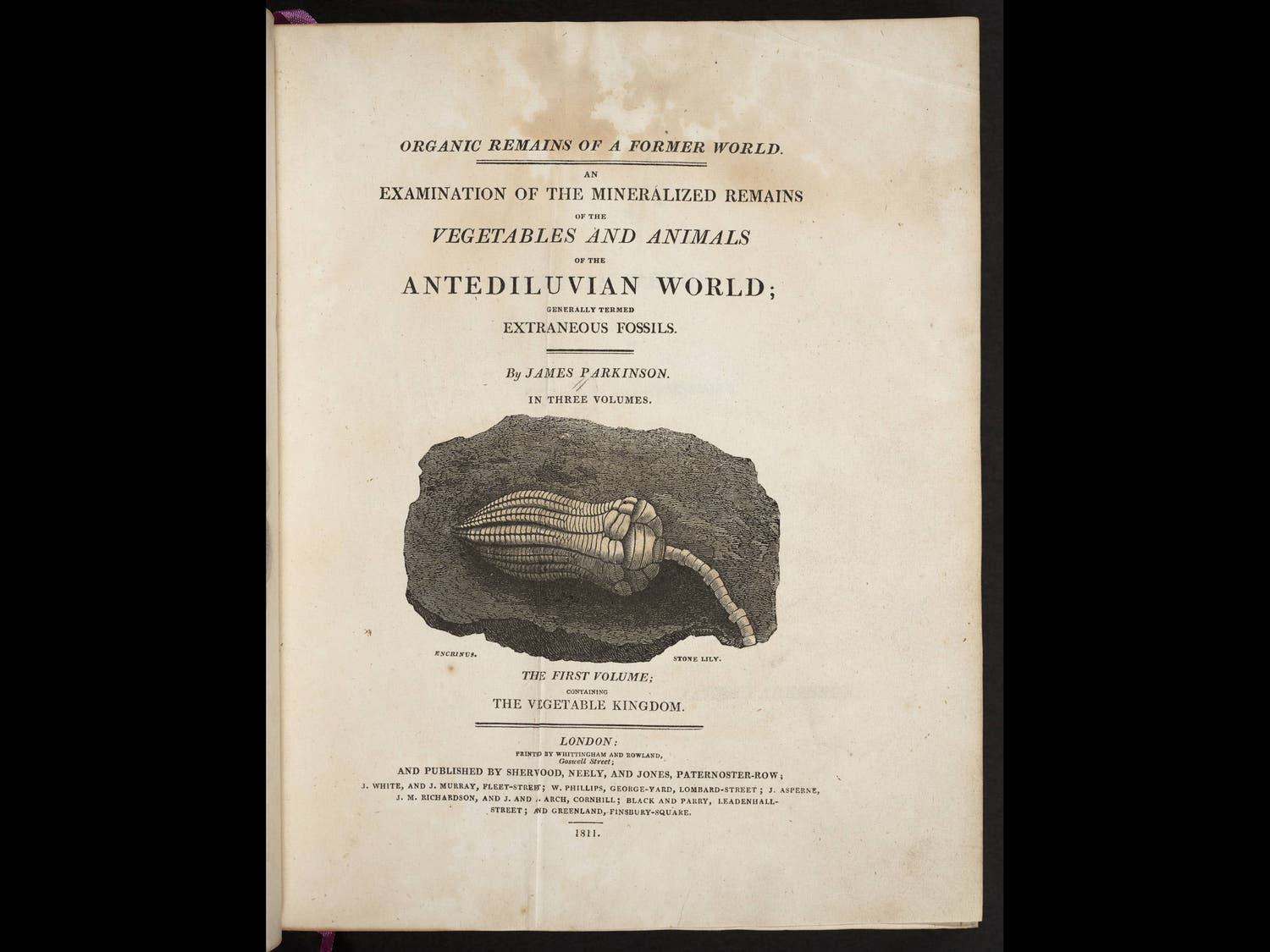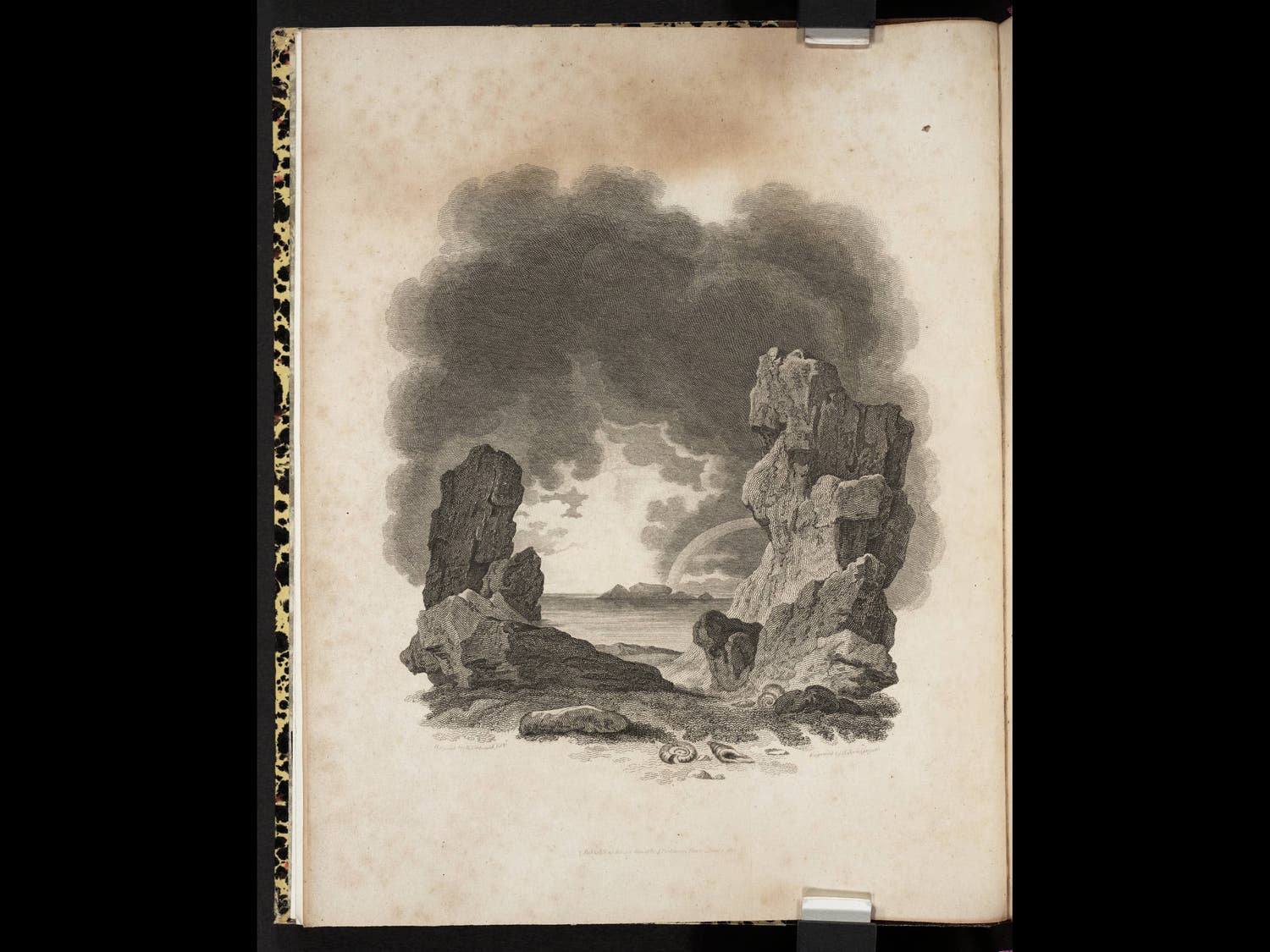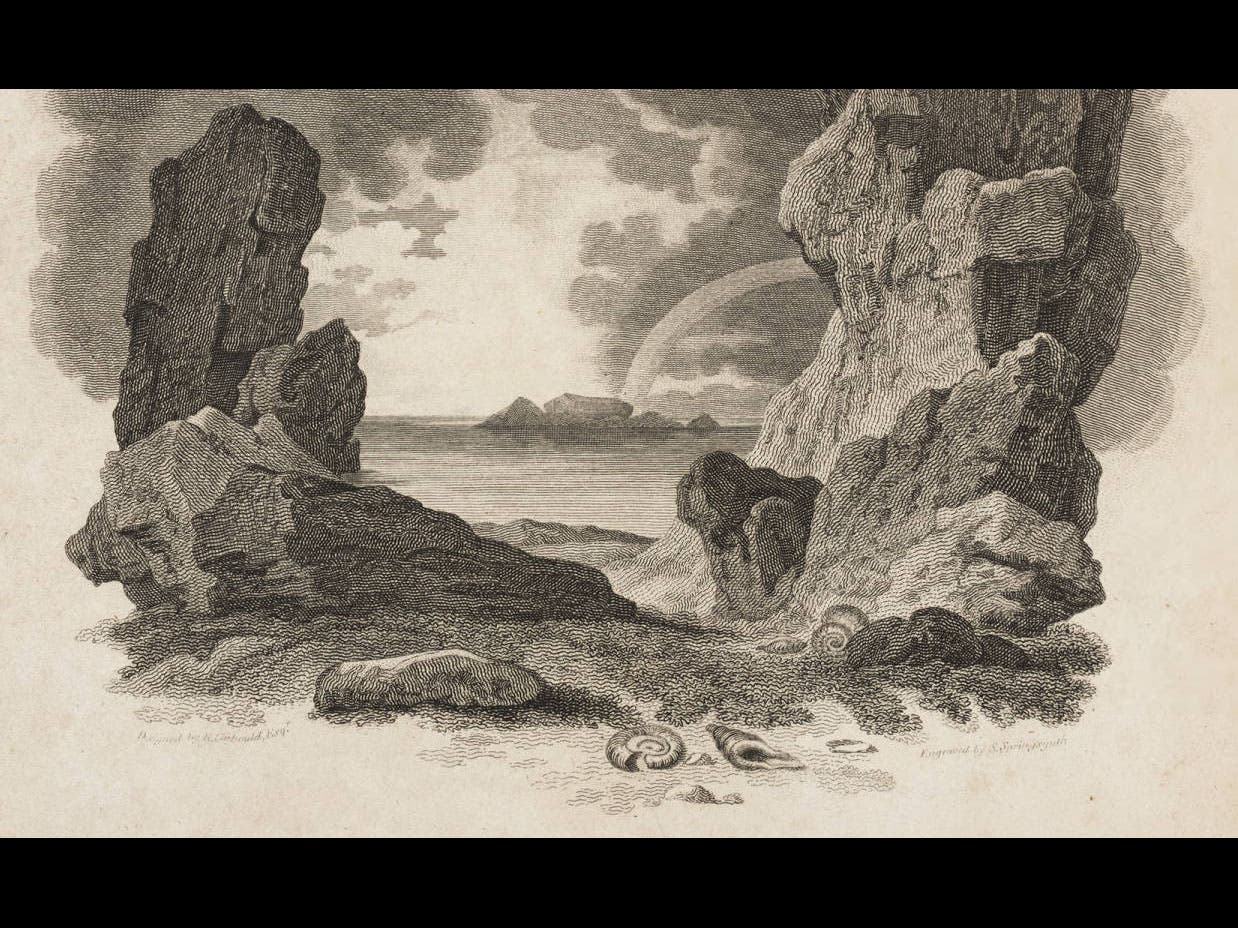Scientist of the Day - James Parkinson
James Parkinson, an English surgeon and ardent collector of fossils, was born Apr. 11, 1755. Between 1804 and 1811, he issued a 3-volume work, Organic Remains of a Former World, to illustrate his collection. The plates show a variety of fossilized plants (first image), a splendid mastodon tooth (second image), and a crinoid that serves as a title-page vignette for all three volumes (third image). As for the origin of his fossils, Parkinson maintained that all fossils had been deposited in the aftermath of the Great Flood of Noah. This position had been common in the early 18th century but was rather rare in Parkinson's time, since most geologists by then had come to realize that one single event could not explain the distribution of fossils in the earth's crust. The frontispiece to Parkinson’s first volume was one of the last visual testaments to "diluvialism," as the “Noah’s Flood” theory of fossil formation was called (fourth image). It depicts a seascape with the Ark coming to rest in the background, while seashells make the transition into fossils in the foreground. The fifth image provides a detail of this charming littoral scene.
After his foray into fossil theorizing, Parkinson returned to his medical profession, and in 1817 he wrote a treatise on what he called the 'Shaking Palsy," a neuromuscular syndrome he had encountered in his practice. We now know it as Parkinson's disease.
Dr. William B. Ashworth, Jr., Consultant for the History of Science, Linda Hall Library and Associate Professor, Department of History, University of Missouri-Kansas City. Comments or corrections are welcome; please direct to ashworthw@umkc.edu.

